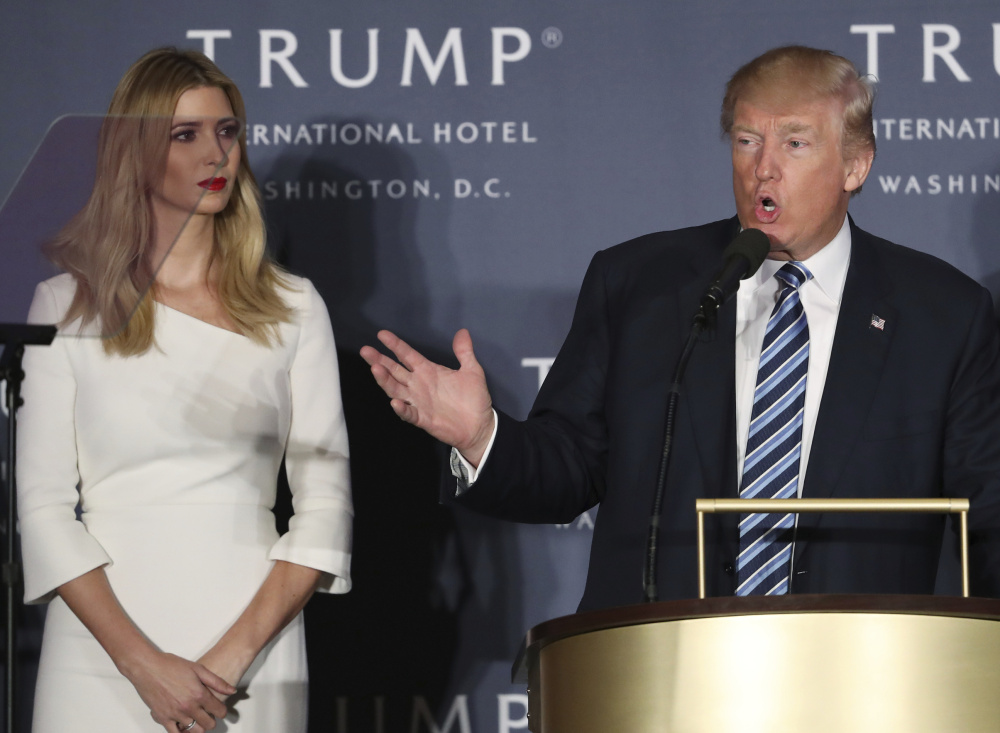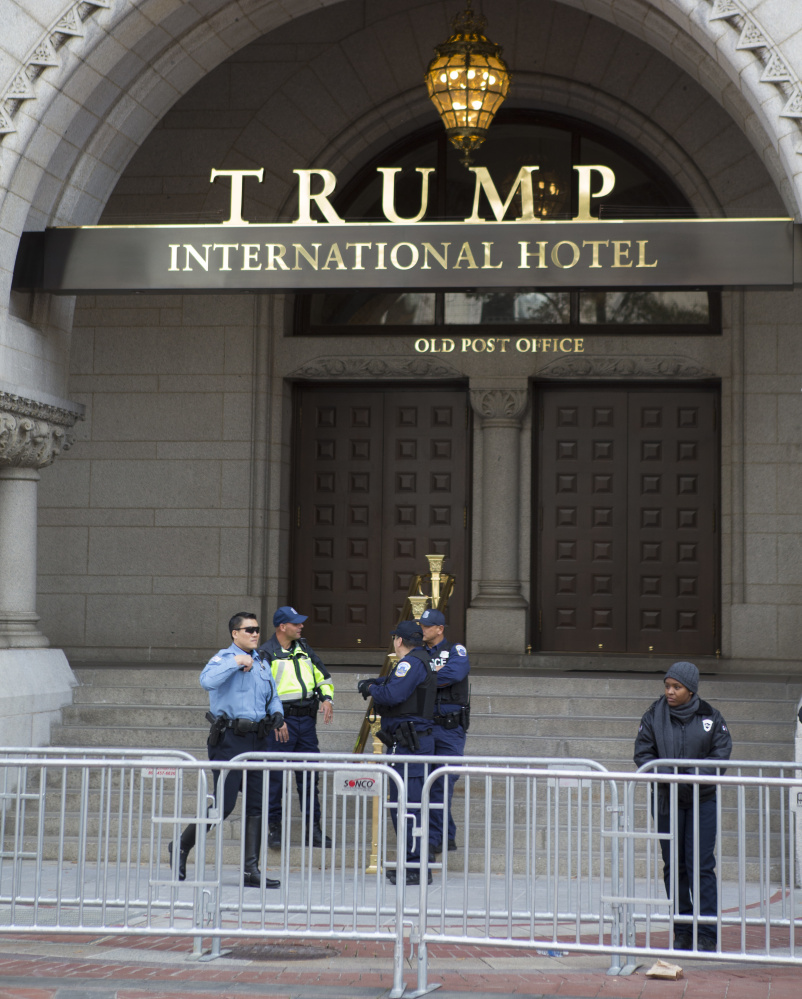WASHINGTON — It’s a public relations win for the president-elect: Donald Trump’s company says it will donate profits from any foreign governments that use his hotels. In practice, however, the public may never know if any money changes hands.
Trump says he is making the move to avoid the appearance that foreign governments can curry favor with him by using his hotels – including one that just opened a short walk from the White House.
“This way, it is the American people who will profit,” said Sheri Dillon, a lawyer working with the Trump Organization, as she outlined Trump’s plan for his global business empire while he’s president. The hotel-profits money would be sent the U.S. Treasury.
Yet the unusual arrangement left many ethics experts with questions about how it would be implemented, disclosed and enforced. Several panned the idea as an unenforceable PR move.
One key question was about Trump’s definitions. The donations pledge only applies to “his hotels and similar businesses,” Dillon said, leaving open questions about foreign governments that may purchase condos in his buildings or spend money on Trump golf courses.
The policy appears to apply only to “foreign governments,” – a narrow description that seems to overlook governments that use a third-party vendor to do business with Trump. It does not apply to domestic interests, including companies that may have regulatory business before the government, or domestic lobbyists.
And then there is the focus on “profit.” Steve Carvell, a Cornell University School of Hotel Administration professor, said it’s not impossible – but is challenging and unusual – to try to calculate “profit” on an individual room or venue rental. Typically, that’s assessed monthly or quarterly and for an entire category – such as the rooms or food and beverage department – within a property.
“It’s a monumental task to constantly run this down,” Carvell said. “Even if the company is trying its hardest and making its very best effort, it will be difficult to fulfill that goal.”
U.S. presidents are not subject to the conflict of interest laws that their own appointees must follow, but until now they have followed them anyway to set an example. Trump is refusing to give up a financial interest in his company while turning over the reins to his adult sons and a senior executive.
The policy is crafted to address the argument that Trump’s business may not break conflict-of-interest law but does violate the U.S. Constitution. Ethics attorneys have argued that foreign government guests at his hotels will put him in violation of the emoluments clause of the Constitution, which prohibits presidents from accepting gifts and payments from foreign governments without congressional approval.
Send questions/comments to the editors.




Comments are no longer available on this story